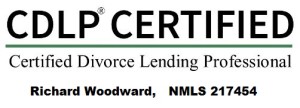
Property Settlement Notes when Divorcing
Property Settlement Notes in Divorce
Property Settlement Note – a deferred payment in property settlement used to equalize property.
- Used to equalize property
- Not taxable to recipient
- Does not survive bankruptcy
Very often when divorcing couples negotiate the terms and conditions of a property settlement, they agree to a structured settlement, which is a series of smaller payments paid over time, as opposed to a lump-sum payment. In this routine, a series of payments over a period of time comes to more than the agreed upon settlement sum because the recipient normally receives interest to compensate for the delayed payment.
A property settlement note is not taxable to the recipient because the IRS says that the transfer of property in a marriage is not taxable and in this scenario, the property settlement note is still a division of property. However, any interest earned and paid as a term of the property settlement note is taxable income.
A property settlement note does not survive bankruptcy. Therefore, if the husband owns his own business worth $2M and the wife is receiving a property settlement note of $1M for the value and the husband drives the business into the ground and files bankruptcy, the wife may lose her income from the property settlement note.
IMPORTANT NOTE REGARDING INCOME FROM PROPERTY SETTLEMENT NOTE
Income from a property settlement note is not always considered ‘qualifying income’ for mortgage qualifying purposes and if the income from the property settlement note is needed for qualification then it is important for you to consult with a mortgage professional who understands divorce guidelines because you want to make sure that future financing plans are achievable.
Working with a Property Settlement Note & Mortgage Financing
Misunderstood mortgage guidelines are often the reason for mortgage applications being denied and creating the misconception that mortgage financing is extremely hard to obtain. Working with a knowledgeable mortgage professional who understands how divorce situations transfer over into mortgage guidelines is key for setting your divorcing clients up for success post-divorce. Understanding that various sources of income have varying requirements in order to be considered as ‘qualified income’ is another key component. Let’s take income from a property settlement note as an example.
There are two standard requirements that need to be met in order for income from a Property Settlement Note to be used for mortgage qualifying purposes:
- A copy of the note showing payment terms and proof of continuance for 36 months from the date of loan close.
- Proof of receipt of payment for the most recent one year (12 months).
A solution in a situation where income is generated from both support and a property settlement note might be to suggest that all income be classified as support for the time needed to establish minimum receipt and continuance requirements with the divorce settlement agreement containing a modification of support after the required time frames are met.
It takes teamwork to bring the typical divorce settlement together. There are usually quite a few people involved from the divorcing clients, attorneys, financial planners, mediators, real estate agents, appraisers and mortgage professionals.

Working Together to Achieve a goal. A recursive process where two or more people work together to realize shared goals
As daunting as the coordination required might seem, you can always count on me to manage the mortgage financing piece for your divorce team and divorcing clients. This is what I do and I do it every day.
Never hesitate to reach out whenever you have questions.
Asset Depletion – Loan Program
Asset Depletion is a great option for clients who need to show additional information for mortgage qualifying purposes. (It’s funny how the term ‘Asset Depletion’ is exactly what the divorcing client is trying to avoid by obtaining a mortgage in the first place!)
Various investors have varying guidelines and requirements for asset depletion; however, typically assets may be used as income with the following guidelines.
- There can be no ‘double-dipping’ – meaning that the asset account being used as income cannot be used for down payment or reserve requirements. It can only be one or the other – asset or income.
- The account being used as income must not have a penalty for early withdrawal.
- Typically the account must be an investment type account and not a checking, savings, or money market account.
- The assets are not typically required to be pledged in any format. Post-closing, the borrower is allowed to use all the funds if they choose to. It sounds risky, but it is assumed that if a borrower has the ability to establish an account with sufficient value, they are responsible enough not to wipe out their assets.
- There may be seasoning requirements on the asset account before it can be considered as qualifying income through asset depletion. Seasoning requirements will vary investor to investor. However, most seasoning requirements will be overlooked in divorce situations as the asset is considered as ‘seasoned’ during the marriage.
- The total amount of assets in the account being used may be amortized over a period 360 months or less depending on the investor.
Let’s look at the ability for Jim to purchase a new home after his divorce is final. Due to the fact that Jim has to pay Jeanne 50% of his gross income each month, he no longer qualifies for a new mort-gage. However, Jim has an investment account with $500,000 in it. Jim may qualify for the new mortgage by amortizing the $500,000 over 360 months per investor guidelines – this gives Jim an additional $1,389 of month income for mortgage qualification purposes and does not typically require that Jim pledge these assets for security purposes either.

Richard Woodward is a Certified Divorce Lending Professional
Why you Need a Certified Divorce Lending Professional (CDLP) on Your Professional Divorce Team.
A professional divorce team has a range of team players including the attorney, financial planner, accountant, appraiser, mediator and yes, a divorce lending professional. Every team member has a significant role ensuring the divorcing client is set to succeed post decree.
A Certified Divorce Lending Professional brings the financial knowledge and expertise of a solid understanding of the connection between Divorce and Family Law, IRS Tax Rules and mortgage financing strategies as they all relate to real estate and divorce. Having a CDLP® on your professional divorce team can provide you the benefit of:
- A CDLP is trained to recognize potential legal and tax implications with regards to mortgage financing in divorce situations.
- A CDLP is skilled in specific mortgage guidelines as they pertain to divorcing clients.
- A CDLP is able to identify potential concerns with support/maintenance structures that may conflict with mortgage financing opportunities.
- A CDLP is able to recommend financing strategies helping divorcing clients identify mortgage financing opportunities for retaining the marital home while helping to ensure the ability to achieve future financing for the departing spouse.
- A CDLP is qualified to work with divorce professionals in a collaborative setting.
- A CDLP can provide opportunities in restructuring a real estate portfolio to increase available cash flow when needed.
- A CDLP maintains a commitment to remaining educated and up to date in the ever changing industry guidelines and tax rules as they pertain to divorce situations.
- A CDLP is committed to providing a higher level of service to you and your divorcing clients.
The role of the CDLP is to help not only the divorcing client but the attorney and financial planner understand the opportunities available as well as the challenges divorce can bring to mortgage financing during and after the divorce. When the CDLP is involved during the divorce process and not after the fact, many potential financing struggles can be avoided with valuable and educated input from the Certified Divorce Lending Professional.
Read more about Divorce Lending on the following pages.
“Nothing matters more in winning than getting the right people on the field. All the clever strategies and advanced technologies in the world are nowhere near as effective without great people to put them to work.” – Jack Welch, Winning
Richard Woodward, NMLS 217454
Your Local, Direct, 5 Star Rated Mortgage Lender, Specialty Lending Manager
Office: (214) 945-1066
mortgageprosus.com/5-star-reviews
Service First Mortgage NMLS 166487
6800 Weiskopf Ave #200, McKinney, TX 75070
Licensed by the Texas Department of Savings and Mortgage Lending (SML) Mortgage Banker Registration. Service First Mortgage is an Equal Housing Lender. This is not an offer of credit or commitment to lend. Loans are subject to buyer and property qualification. Rates and fees are subject to change without notice. The views expressed on this site are those of the individual author and do not necessarily reflect the positions, strategies or opinions of Service First Mortgage or its affiliates.
This is for informational purposes only and not for the purpose of providing legal or tax advice. You should contact an attorney or tax professional to obtain legal and tax advice. Interest rates and fees are estimates provided for informational purposes only, and are subject to market changes. This is not a commitment to lend. Rates change daily – call for current quotations.















